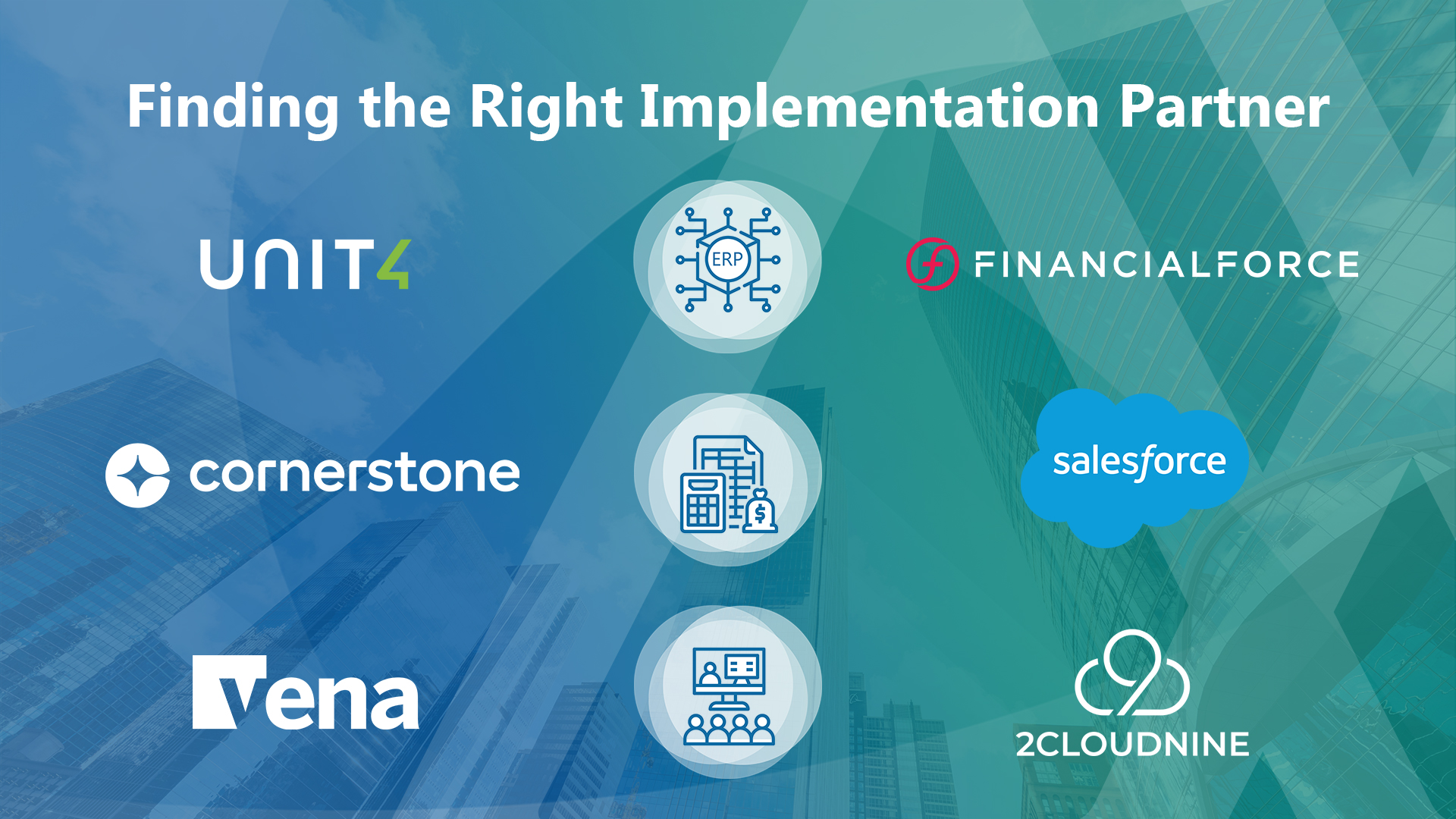There are numerous studies that show that the failure rate of ERP projects is anywhere from 50 to 75 percent. And most of the time, the last straw of a failed project is that there’s not enough budget left to remedy whatever the issue is. When there’s no more budget – there’s no more project. In instances where these tumultuous projects manage to avoid total failure, they’re often massively over budget.
What leads to ERP implementation failure?
While there can be a seemingly unlimited number of reasons for project failure, the top three complaints we’ve heard are scope creep, lack of communication and lack of budget. Luckily, these catalysts can largely be avoided.
Start with the basics
Before you even consider implementing a new solution, it’s crucial to have a clear understanding of your organization’s needs, goals and future vision. Take the time to ask your team what kind of expertise they’re looking for and what their core functionality requirements are. If you’re worried about missing something, writing a comprehensive RFI can help you identify those needs and create a solid foundation for your RFP. By putting in the time and effort to pin down your organization’s specifications beforehand, you’ll be able to ensure that potential partners not only meet but exceed your expectations.
An ERP implementation process can be complex and time-consuming. An experienced and knowledgeable implementation partner is vital to ensure that the project is completed successfully and with minimal impact on your already-strained budget.
What are their qualifications – and does it match their reputation?
Once you’ve narrowed down your list of potential partners, take some time to research their qualifications. You want to ensure that they have the experience, knowledge and technical expertise necessary to handle the needs and scope of your project. This is also the time to ensure that your shortlisted vendors have the appropriate security requirements for your organization.
Look for companies with positive reviews from other clients as well as industry awards or certifications that demonstrate their commitment to excellence. Take a look at their case studies and customer reviews; these should give you a good idea of their skillset and compatibility. This will give you more confidence in their abilities and help ensure that they can deliver on their promises.
With a project this large and overwhelming, it can be easy to get fixated on the wrong project elements. Many organizations find it helpful to hire an independent implementation consultant who can steer the project in the right direction.
Brains or branding?
A passionate partner sales team and a great website are just the beginning – make sure they have the experience to back up their promises for successful implementation.
What’s their track record with staying within budget?
With such an expensive project at hand, an effective partner will work hard to ensure that the cost of ERP implementation is kept within budget. They should also be able to provide a pricing structure that matches your needs and provides value for your investment, including any upgrade or add-on costs.
What happens after go-live?
An experienced and knowledgeable ERP implementation partner will have access to resources and tools that can help you get the most out of your ERP system. This includes training, support and guidance to help you get the maximum benefit from your investment. In addition, they should be able to provide you with insights into industry trends, as well as best practices to ensure that your business remains competitive.
Final thoughts
Organizations can mitigate the risk of project failure by not rushing their pre-project homework. Choosing the right implementation partner, with the credentials to back their experience, is essential to ensure that your projects runs smoothly and within budget – from start to finish. Taking the time to document all of your team’s requirements (however minute) will help your team avoid scope creep, budget creep and ultimately, project failure. In addition, having an experienced team of experts on hand can provide valuable insights into industry trends and best practices while helping your organization get the most out of your investment.
This is a sponsored article by Agilyx.






